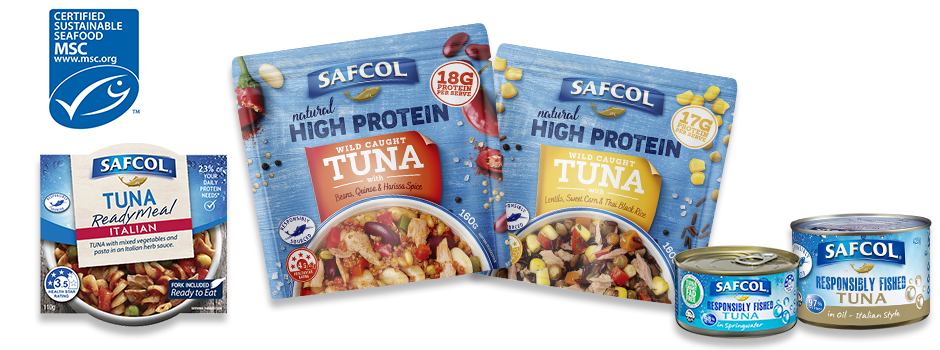by Ashleigh Feltham
Accredited Practising Dietitian and Accredited Nutritionist

Hormones are vital to your health.
They change at different stages of your life for example from puberty to adulthood as well as in response to external influences like stress.
Hormones are also vital for your body to function optimally like maintaining a healthy weight and allowing calcium to be absorbed into your bones.
What happens when your hormones become imbalanced?
The side effects include type 2 diabetes, tumours, cysts, hyperthyroidism, altered gut health function and depleted vitamin levels in your body.
There are some factors that are out of your control that influence your hormone health but here are 8 ways you can make a positive impact on your hormone balance.
Focus on healthy fats
Your body needs fat, specifically essential fat which your body can only get from your diet. These two types of fat are called linolenic or omega-3 fat and linoleic or omega-6 fat and these produce eicosanoids. Eicosanoids control the hormones made in your body and without them, your bodies systems would turn into chaos. Food sources of omega-6 fat include nuts, seeds, most vegetable oils, and eggs. Sources of omega-3 fat include Safcol seafood, seaweed, walnuts, chia, and hemp seeds.
Monounsaturated fat is another healthy fat to include. Although not essential, it plays a positive role in helping your body maintain a healthy hormone balance. Monounsaturated fat can be found in foods like avocado, olives, peanuts, and almonds.
Not having enough healthy fat inhibits your body’s ability to produce sex hormones. This can lead to many complications including weakened bones. In addition, having inadequate dietary fat affects serotonin levels. A diet which is low in fat inhibits your body from making serotonin, which is your happy hormone.
 Get Your Zzzz
Get Your Zzzz
Getting enough sleep is vital to keep your hunger hormones balanced. Studies have shown if you do not get enough sleep you are more likely to overeat. Over 6 hours of good quality sleep is vital for your health, but an optimal amount is around 8 hours for most adults.
Look after your gut
Your microbiome produces hormones which can positively or negatively affect your health depending on the types of bacteria living in your gut. Studies have shown that having a good variety of healthy bacteria like Bacteroidetes, Lactobacillus and Bifidobacterium and less Firmicutes can help maintain a healthy weight and improve insulin resistance. These probiotics send out signals which influence your hormone levels which ultimately influence your weight.
Incorporating a serve or two of probiotics into your day is a healthy habit to have. Try including foods like yoghurt, miso, kimchi, kefir, sauerkraut, tempeh or tofu into your day. To feed these good bacteria you need soluble fibre and resistant starch. These feed your garden of microbiota to keep the bugs in your gut on your health’s side. Try including cooked and cooled pasta and rice or potatoes to add resistant starch to your diet as well as a variety of nuts, seeds, whole grains, fruits and vegetables to meet your soluble fibre needs.
Learn to relax
Chronic stress can cause overstimulation of cortisol which is a fat-storing hormone when released in your body for a long period of time. Research has shown yoga is a great activity to manage stress and promote optimal gut health.
Take a break from the ultra-processed foods
Cakes, chips, refined carbohydrates, and sugar-loaded sauces and drinks are linked to insulin resistance. Focus on minimally processed foods or those less processed like whole-grain bread over white bread, a lean piece of chicken breast over salami or a glass of milk over a soft drink.
Research suggests that antioxidants and photochemical rich foods like fruit and vegetables as well as whole grains can decrease insulin resistance. The B vitamins found in less processed foods like whole grains, meat, eggs, legumes, nuts, seeds, green leafy vegetables and fruit help increase insulin sensitivity. This will promote a healthy hormone balance and allow the hormones in your body to function normally.
Move your body
Both cardio and resistance training reduces your insulin resistance and promotes insulin sensitivity by allowing the glucose from carbohydrates and amino acids from the proteins you eat to be removed from your blood system more effectively. This can help to reduce your risk and manage diabetes.
Protein for the win
Having enough protein in your meals and snacks helps to manage your hunger hormones. You will feel fuller for longer as protein will help decrease your hunger hormone called ghrelin and increase your fullness hormones leptin, GLP-1 and PYY. Aim for 20-30g of protein per meal and a serving of protein in your snacks like a handful or nuts, a tin of Safcol tuna or salmon in spring water, a boiled egg or a tablespoon of nut butter to keep your body in a healthy balance.
Remember iodine
Iodine is an essential mineral needed for your thyroid to work normally. Your thyroid is an endocrine gland which releases hormones into your body and optimal function is needed for a healthy metabolism. Foods to include iodine in your diet are foods like Safcol seafood, seaweed, bread (except for organic bread which is not fortified with iodine), dairy and eggs.
Take home message
What you choose to eat influences your body’s ability to regulate its needs for optimal health. Try these 8 easy steps to keep your hormones on your side.












Comments are closed.